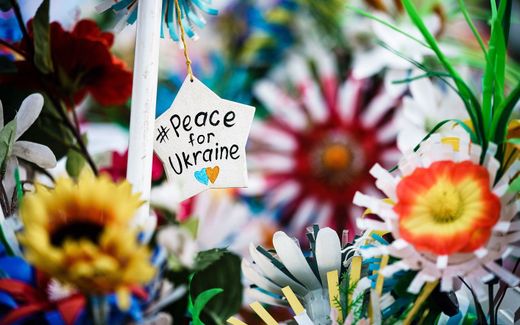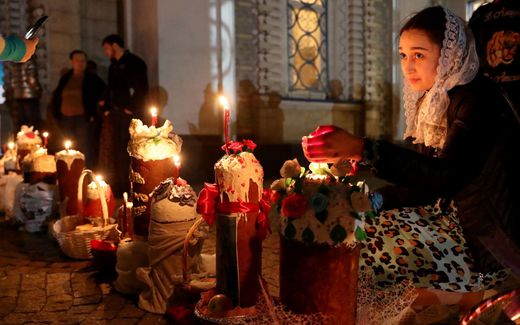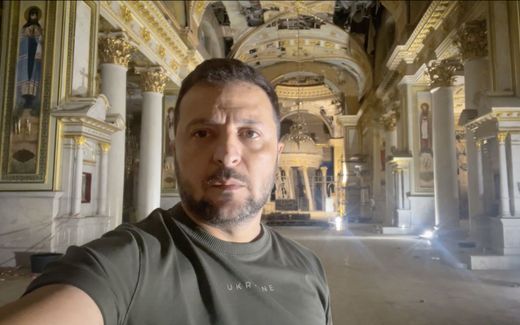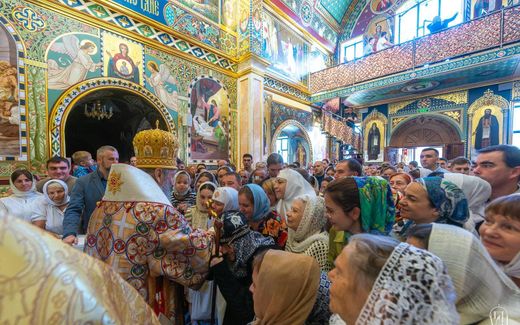Orthodox Church of Ukraine tightens ties with Europe

The Orthodox Church of Ukraine is distancing itself from Russian Orthodoxy. Photo: Metropolitan Epiphanius of the OCU serves during a religious service at a mass grave in the churchyard of St. Andrew's Church in Bucha. Photo AFP, Anatolii Stepanov
Eastern Europe
The autonomous Orthodox Church of Ukraine (OCU) is joining a European church alliance and further turning its back on the East.
“It is in the spirit of solidarity that we welcome the Orthodox Church of Ukraine,” said the General Secretary of the Conference of European Churches, Dr Jørgen Skov Sørensen, on Monday. According to him, the move of the Ukrainian Church “not only manifests commitment of the European churches in realising peace in Ukraine, but also the significance of joining hands with our Ukrainian brothers and sisters in Christ.”
The CEC is an alliance of 114 Christian churches spread across Europe, aiming to further cooperation between the various churches. It pursues goals such as promoting world peace and a sustainable world.
The accession of the Ukrainians to this European alliance is another step towards the West. At the beginning of this month, the OCU switched from the Julian calendar, common in Eastern Orthodox churches, to the Gregorian. This means the OCU no longer commemorates Christmas on 7 January but on 25 December, like other denominations. These moves are seen as distancing it from the Russian Orthodox Church, from which the OCU previously separated. The Russian church is known to support President Putin’s full-scale invasion of Ukraine.
The Orthodox Ukrainians within the OCU want nothing to do with that, so they sent a formal application to the CEC in 2022. Earlier this year, the CEC Governing Board accepted the application, speeding up the accession process. CEC President and Greek Orthodox Archbishop Nikitas of Thyateira and Great Britain conveyed delight in his letter to the Ukrainian Metropolitan Yevstratiy of Bila Tservka, saying, “It is our joy to welcome you and embrace you in Christian love.”
Voice
In a press release, the CEC states that the OCU’s inclusion in the partnership is part of the Pathways to Peace initiative. That initiative aims to promote peace, strengthen European cooperation and “increase the voice of Ukrainian churches in the ecumenical debate”.
Metropolitan Yevstratiy of Bila Tservka, the OCU spokesperson, stated that for his church, “it is of great importance to join the most respected and active ecumenical community in Europe.”
The Russian Orthodox Church is no longer a member of the Conference of European Churches. In 2008, it left the alliance after a dispute over the membership of the Estonian Orthodox Church. In its Pathways to Peace Initiative Document, the CEC addressed the Russian Orthodox leadership after the Russian invasion, “albeit without receiving a response”.
Related Articles







